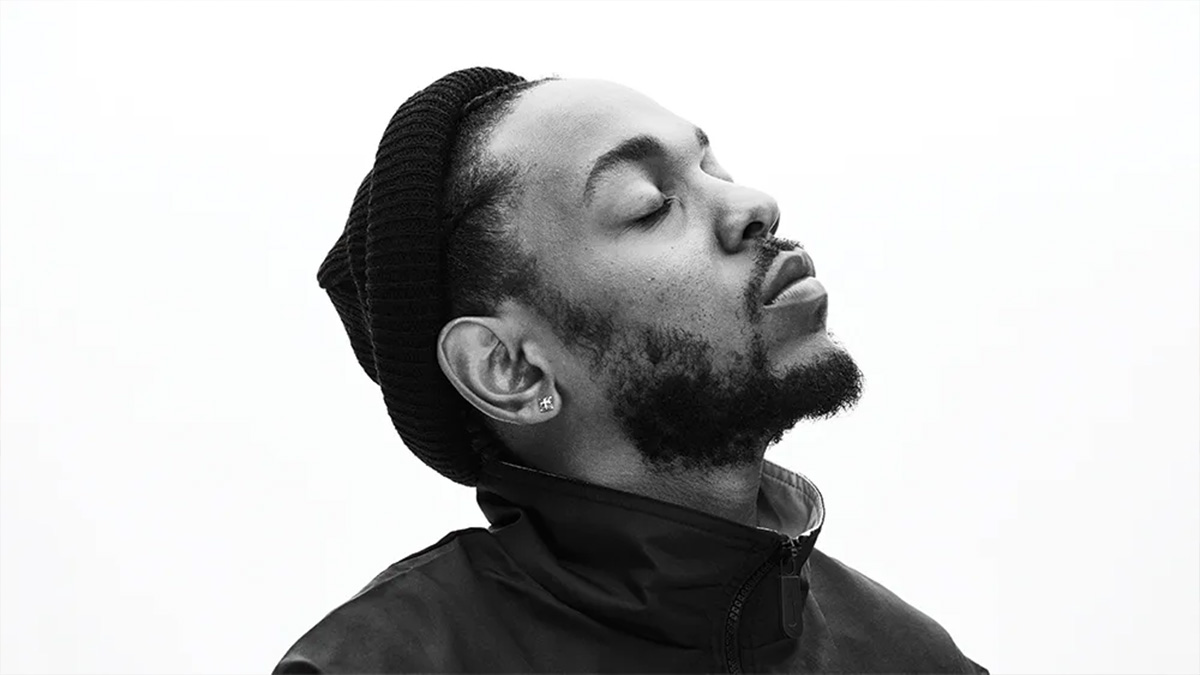At first glance, Kendrick Lamar and the group N.W.A may seem like representatives of two very different eras of Compton rap. One, a scholarly poet of post-Obama America, offers introspective narratives on loyalty, faith, and systemic violence. The others, pioneers of the late 1980s, delivered unfiltered outcries against police brutality, racial injustice, and urban poverty with raw and explosive language. Yet, a closer lexical analysis reveals a common thread: a wounded city turned into an artistic battleground. A collective voice forged in the crucible of reality.
Kendrick Lamar: A Prophetic Voice of Redemption, Identity, and Resistance
The TF-IDF analysis of Kendrick Lamar’s lyrics uncovers a distinctive lexical structure dominated by words like “nigga”, “love”, “loyalty”, “jesus”, “alright”, and “god”. These aren’t just words — they form the moral backbone of a complex body of work that constantly teeters between spiritual downfall and transcendence. In good kid, m.A.A.d city (2012), Kendrick chronicles his youth in Compton, torn between faith, survival, and street rituals. In To Pimp a Butterfly (2015), he summons the ghosts of Black America — from jazz to the Nation of Islam — to paint a postmodern portrait of a Black artist torn between success and betrayal. In DAMN., every word is a key, every bar a psalm. The insistent repetition of the word “nigga” (1.88) is loaded with identity — Kendrick claims it, deconstructs it, and reclaims it.
This lexicon reveals a poetic field of intense emotion: the obsession with doubt (“don’t,” “loyalty”), redemptive love (“love,” “alright”), Christian salvation (“jesus,” “god”), and spiritual warfare (“fuck,” “wanna,” “bitch”). Kendrick is both a chronicler of chaos and a prophet of forgiveness. His Compton roots remain radical — but in his verses, the streets become parables. Every line is a mirror held up to society.
N.W.A: Declaring War from Compton
In contrast, N.W.A’s vocabulary is that of a war cry. Between 1988 and 1991 — as Compton was engulfed in gang violence, the crack epidemic, and relentless police harassment — the crew composed of Dr. Dre, Eazy-E, Ice Cube, MC Ren, and DJ Yella electrified America with a voice never before heard in mainstream media. Their TF-IDF analysis reveals a lexicon dominated by words like “fuck” (8.61), “nigga” (5.93), “police” (3.60), “compton” (2.76), “motherfucker,” “gangsta,” and “bitches.” No frills here — this is pure, unfiltered aggression. The word “fuck” reigns supreme: rallying cry, verbal weapon, declaration of war.
Their language reflects their mission: N.W.A’s lyrics are a form of insurrection. Through songs like Fuck Tha Police, Express Yourself, or Gangsta Gangsta, they expose a world untouched by the American Dream. Spirituality, loyalty, and love are absent from their top 25 — what prevails is defiance, urgency, and the affirmation of survival. “Police” is the enemy, “Compton” is the battlefield, “nigga” is a cry of brotherhood and revolt.
Two Visions of Compton: From Rebellion to Reflection
In comparison, Kendrick Lamar inherits N.W.A’s intensity but transforms it into political and spiritual reflection. Where N.W.A shouted the horrors of a dead-end world, Kendrick dissects his roots and searches for meaning. Where the group erupted in raw rage, Kendrick writes with form, metaphor, and poetic introspection. N.W.A’s Compton is barricaded, chaotic, immediate. Kendrick’s is intimate, intergenerational, but equally aflame. His is the Compton of trauma and transmission.
The shift in socio-political context is also key: N.W.A voiced the rage of the Reagan-Bush era, when ghettos were criminalized. Kendrick speaks from a time when Black visibility has increased — sometimes even celebrated — yet alienation remains. He exposes the hypocrisy of a world that elected Obama but still sees police brutality. For N.W.A, the enemy was visible: the cops. For Kendrick, the enemy is structural — white America, the media, the industry, and the demons within the Black community itself.
Conclusion
Between N.W.A and Kendrick Lamar, we witness the full evolution of Compton rap: from raw gangsta energy to refined political poetry. Yet the core remains unchanged — a burning need to make Black urban voices heard. The language may have evolved, but the fight remains.
